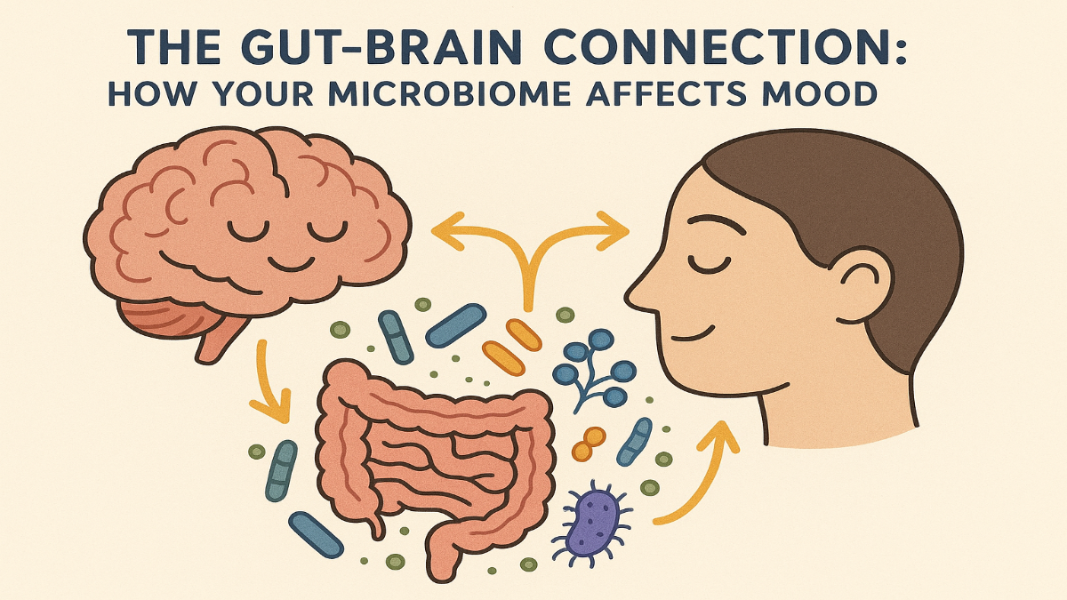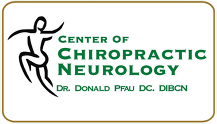
The Gut-Brain Connection: How Your Microbiome Affects Mood
Share
Your Mood Isn’t Just in Your Head—It’s in Your Gut
If you’ve ever had a “gut feeling” or butterflies before a big moment, you’ve felt the gut-brain connection firsthand. But what most people don’t realize is that this connection isn’t just emotional—it’s biological, chemical, and deeply physical.
Your gut and brain are in constant communication, and your microbiome plays a major role in how you think, feel, and focus.

The Vagus Nerve: The Superhighway Between Gut and Brain
The vagus nerve connects your gut and brain like a two-way street. When your gut is inflamed or imbalanced, those distress signals travel up to your brain and influence mood, energy, and cognition.
That’s why gut issues can lead to:
- Anxiety
- Depression
- Brain fog
- Insomnia
- Irritability
- Panic attacks
Your Microbiome Makes Your Neurotransmitters
Believe it or not, most of your feel-good chemicals are made in the gut:
- 90% of serotonin (mood, sleep, appetite)
- 50% of dopamine (motivation, focus, pleasure)
- GABA (relaxation and calm)
When your gut is damaged or out of balance, production of these crucial neurotransmitters plummets.
Signs Your Gut Is Affecting Your Mind
- Mood swings with no clear trigger
- Anxiety after meals
- Brain fog or forgetfulness
- Trouble sleeping
- Cravings for sugar or carbs
- Feeling overwhelmed by minor stress
These symptoms often get misdiagnosed as emotional issues, when the real problem is in your gut.
Common Gut Triggers That Impact Mood
- Processed foods and sugar
- Artificial sweeteners
- Gluten (for some people)
- Antibiotics or long-term medications
- Chronic stress
- Alcohol overuse
All of these disrupt the microbiome and inflame the gut, leading to mood instability.
How to Support Your Gut for Mental Clarity
-
Rebuild the Gut Lining
- Use a formula with L-glutamine, zinc carnosine, and aloe to heal and protect. -
Repopulate with Probiotics
-Choose clinically validated strains that improve mood and reduce anxiety. -
Feed the Good Guys
-Use prebiotic fiber and polyphenols to nourish beneficial bacteria. -
Support the Brain
- Add adaptogens like ashwagandha or L-theanine to calm the nervous system. - Eat for Calm
- Fatty fish (omega-3s)Fermented foods (yogurt, kimchi, sauerkraut)
- Berries and leafy greens
Dr. Pfau’s Integrative Gut-Brain Protocol
Dr. Donald Pfau uses a 3-part approach:
- GI Barrier Suport – To reduce inflammation and restore the intestinal lining
- Probiotic– To rebuild the microbiome and enhance neurotransmitter production
- Fish Oil – To reduce neuroinflammation and support brain health
- Fish Oil DHA -If you are suffering Brain Fog and need additional support, use this one instead.
This stack has helped hundreds of patients struggling with mood and focus.
What Patients Are Saying
“I thought I had anxiety. Turns out it was my gut. Once I followed Dr. Pfau’s protocol, I felt clearer and calmer within two weeks.” – Leah T.
“I sleep better, think faster, and don’t panic the way I used to. This was a game changer.” – Jordan R.
Take Back Control of Your Mind and Mood
You don’t need to keep guessing. If your gut is imbalanced, your mind will feel it.
[Support both mind and gut with our integrative approach] (insert bundle link here)
Balance your belly. Brighten your brain.
Next: “Heal Your Gut with Food: 5 Powerful Foods That Help (and 3 to Avoid).”
